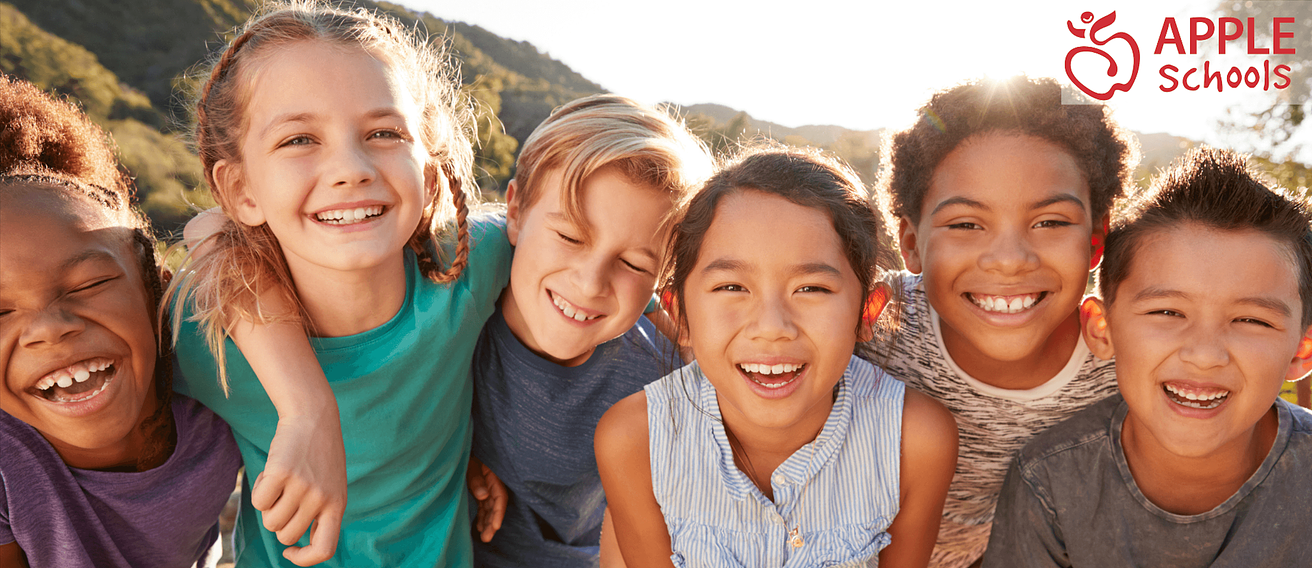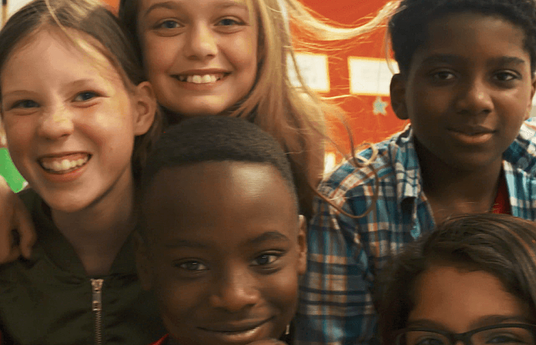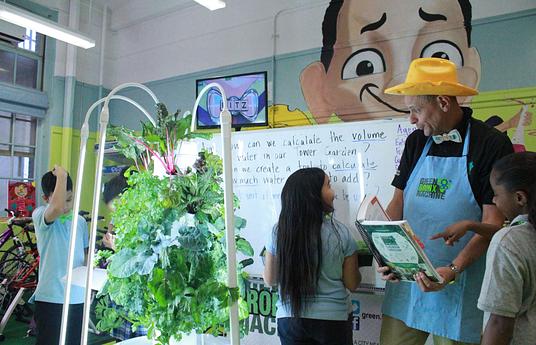APPLE Schools is an innovative health promotion initiative that improves the lives of 20,000+ students annually in Canada. The organization works with vulnerable school communities to change students' healthy eating, physical activity, and mental health habits to improve their quality of life. The initiatives are fun and excite students to move more, eat better, and be more mindful. While school staff and parents guide the students, the project's success ultimately relies on student leaders taking charge.
In this article, Magdalena Pawlowski, the Communications Specialist at APPLE Schools explains the secret behind the success of APPLE Schools in improving students' mental and physical health.
At APPLE Schools, we often hear the question, “how do you do it?” After all, we have over 14 years of scientific research demonstrating that APPLE Schools’ approach does in fact improve students’ mental health, physical activity, and healthy eating behaviours.
There are many driving forces behind the improved health behaviours that are evident in 75 APPLE school communities across four Canadian provinces. But the key to this success isn’t what we do: it’s what each school community chooses to do.
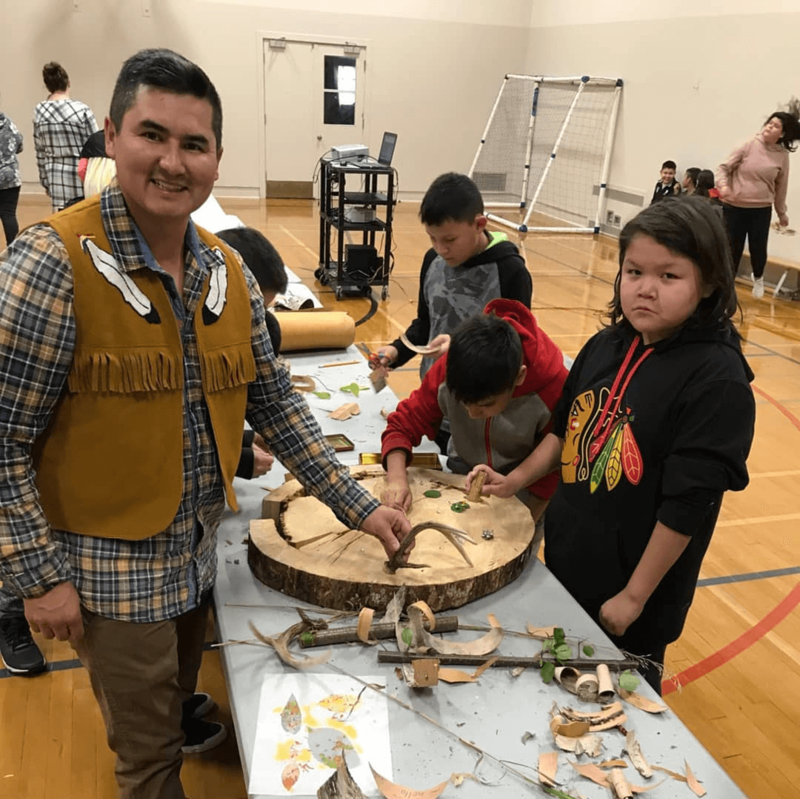
| Prince Charles School in Edmonton, Alberta has a high Indigenous student population. The school community chooses to integrate traditional teachings by embracing land-based learning, creating art, learning traditional games, and inviting elders to share their stories. Cultural teachings enrich lives. |
No one likes being told what is best for them; the same concept applies to health promotion in APPLE schools. A one-size-fits-all approach would never drive the successful results we see in our project, which is why schools need to be autonomous and at the forefront of their own health journey. Every school community is uniquely distinct: whether it’s a First Nations school in Fort Chipewyan, Alberta; a high-immigrant population school in urban Edmonton, Alberta; or an incredibly remote northern school community in Edzo, Northwest Territories – they each have a unique culture, and varying needs, resources, and expertise.
“We know our northern communities are some of our most vulnerable when it comes to health outcomes and health behaviours and we want to make sure supports are being provided to places and people that need and want extra resources,” said Jenn Flynn, executive director of APPLE Schools.
There are three things we consistently provide to every APPLE school to improve health behaviours: expertise, funding, and time.
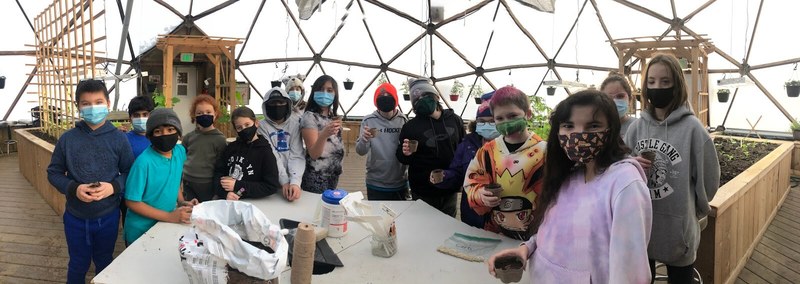
| Students in Aurora Middle School, in Lac La Biche, Alberta, have been learning in their growing dome, which they were able to purchase through a grant they applied for with APPLE Schools’ support. They have learned about growing vegetables in the dome and tying those lessons with Indigenous studies. This unique learning environment has also been promoting positive mental health for students. |
The expertise component involves ongoing support from an APPLE Schools staff member called a school health mentor (mentor). While each school ultimately determines its own health goals and how it will reach that goal, a mentor guides them in being able to identify their goals using data and explores with the school possible ways to meet their goals. Throughout the school year, the mentor connects with each school and provides support through one-on-one meetings, professional development sessions, sharing best-practice resources, sharing a tailored bi-weekly newsletter, reviewing each school’s action plan for wellness; and connecting schools to grants, other schools facing similar challenges, and local partners with applicable resources and expertise. Schools tell us what they want to do, and mentors make sure they get it done. It really takes a community!
Schools need money to get their plan off the ground and sustain it. We provide them with a modest amount each year, and they decide how to spend it. Once they identify their goals and create an action plan, they purchase the required resources or programming. The APPLE team helps to share ideas such as tower gardens, breakfast programs, mental health resources, physical activity programming, or run clubs, for example. We also connect them to potential grants they can apply for and help them develop community partnerships that can support their action plan.
Lastly, we provide schools with time. We work with school community leaders to hire a dedicated and paid in-school position called a school health facilitator (SHF). We train the SHF to work closely with their APPLE school to take charge in propelling healthy changes over three years. They use what we call a wellness lens, where they work to identify how to tweak existing initiatives in schools and put a healthy spin onthem, like healthy celebrations, integrating physical activity to every classroom, intentional mental health breaks, or building a supportive social environment. They also ensure that the schools build ways to keep the healthy initiatives sustainable year after year, by creating a dedicated committee, an ongoing action plan, and school-specific wellness policies or guidelines. The goal is to transition the SHF to a school health champion (SHC), a volunteer school staff member who takes over to maintain and build on the plans and initiatives developed by the community.
“The support from APPLE Schools for the SHC provides us with the needed resources to support all the teachers in the school. Taking this responsibility off the plate of the principal allows it to be a grassroots initiative that supports everyone.” Principal, Brightview School, Edmonton, AB.
School communities certainly dealt with having to rapidly switch gears vis-à-vis COVID-19. With sudden school closures and switching to virtual learning, then doors re-opening but with strict sanitation and physical distancing protocols, our staff took a step back and asked the schools what they needed from us to continue making wellness a priority. Reacting to their feedback made certain that our support remained pertinent and drove results.
And since APPLE Schools is not a canned program, we have been able to shift and adapt relatively seamlessly during COVID-19, making it easier to adjust to each school’s varying needs.
Mental health has been a particularly high concern in most schools. With social isolation, cancellation of extracurricular programs, and learning virtually, school staff requested that we provide them with resources to support students, staff, and families during the difficult time to keep them motivated to be healthy. The latest research by the University of Alberta, School of Public Health has found that while the COVID-19 pandemic has prompted great concerns related to children’s mental health, students in APPLE schools are doing well – they aren’t seeing drastic changes and haven’t suffered a decline in mental health and wellness in this pandemic.
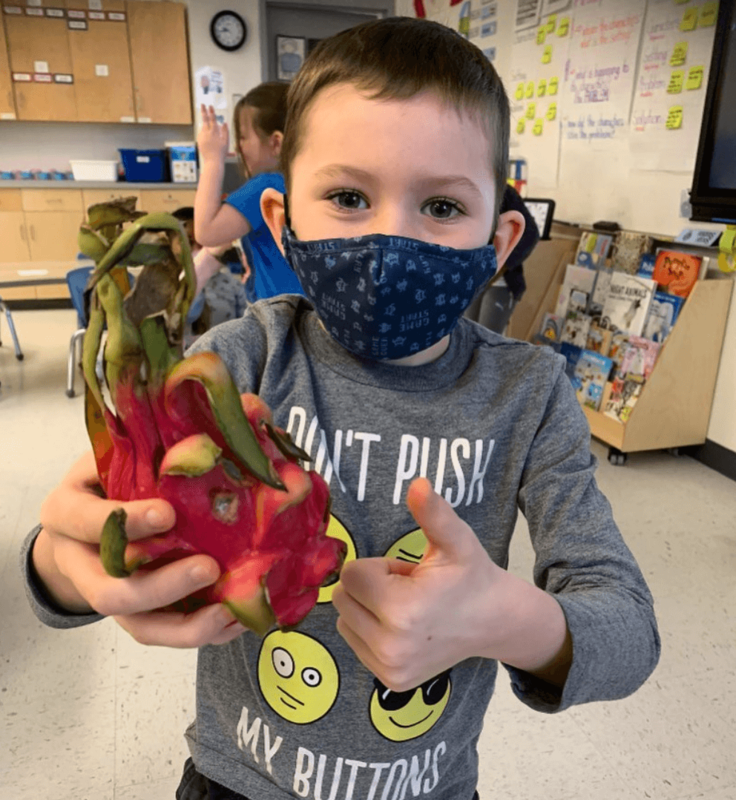
| A student in Father Turcotte School in Fort McMurray, Alberta, gives a “thumbs up” after taste testing a dragon fruit with his classmates for the first time. Many APPLE Schools choose to do taste tests because exposing children to new healthy foods increases the chances they will eat them regularly. |
Schools and organizations are taking notice of the positive changes in APPLE schools. In late 2020, out of 7,000 engaged national ventures, APPLE Schools was selected as the top project by the LEAP Pecaut Centre for Social Impact, in the Healthy Futures Accelerator Project. Over the next five years, we will be working with LEAP and their partners to scale our project with the goal of reaching 62,000 students in 200 schools by 2025. In spring 2021, APPLE Schools will release a guide to implementation for anyone who wants to implement our model in their community. But at the forefront, always remember that the key is to uphold the knowledge and insight of the real experts – the school communities and their members. They hold the unique perspectives required to build a plan that will inspire long-term changes and give students a healthy and happy future.
